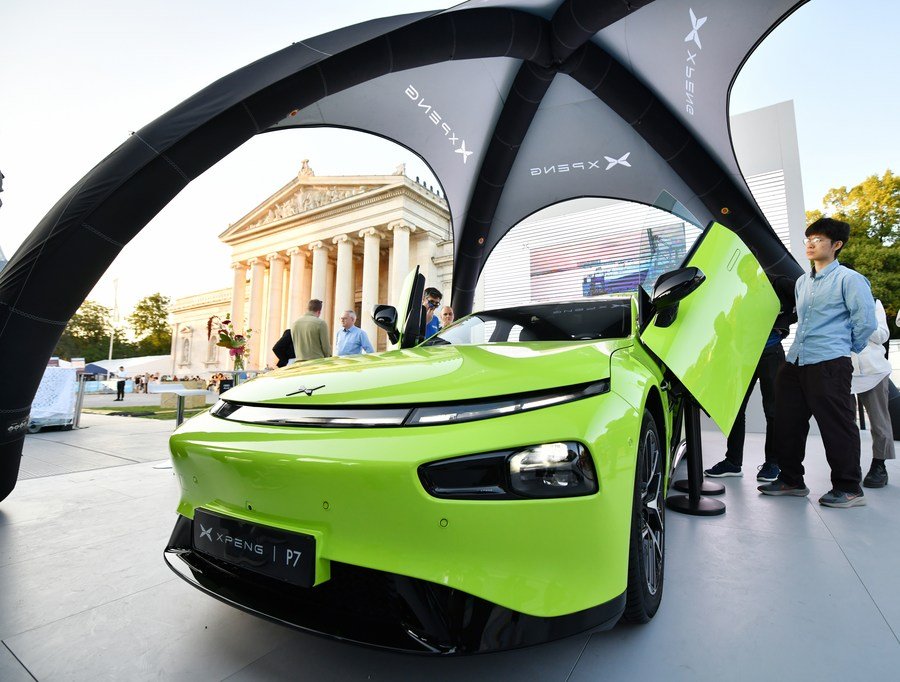Close attention is being paid to whether or not the European Commission will impose additional tariffs on imports of China-made electric vehicles (EVs) after its anti-subsidy investigation.
From a protectionist perspective, additional tariffs may offer a temporary shield for European automakers. But in the long run, they will ultimately erode their competitiveness on the global stage.
Before going deeper into the issue of possible new tariffs on China’s EVs, it may be helpful to review the findings of the book “Prosperity Through Competition” by Ludwig Erhard, a former chancellor of Germany. In this globally influential economics book, Erhard emphasized the importance of free competition as a driving force for economic growth and prosperity. “Competition is the most promising means to achieve and to secure prosperity,” he wrote.
It is a belief shared by the business communities of both China and Germany: tariffs are not the path to enhancing competitiveness. Some German officials and automakers have voiced opposition to the choice of levying new tariffs on China’s EVs.
China’s ascendancy in the EV sector is a testament to the power of competition. This is a competition-led success story in the world’s biggest automobile market. Because of the competitive spirit of the vast number of Chinese enterprises in this field, they have been able to continuously improve their products and cut the costs to provide quality EVs at competitive prices to consumers at home and abroad.
Envision the potential repercussions for China’s EV sector should the European Union decide to levy additional tariffs on these vehicles. In the immediate term, such protectionist measures might indeed cause a temporary drop in the European demand for Chinese EVs. Yet, this scenario will not spell the exclusion of Chinese EVs from the EU marketplace given their high competitiveness.
Will the new tariffs scenario fortify the competitiveness of European carmakers? The answer is no. Such tariffs could hamper European manufacturers’ initiative to invest in technological advancements and cost-cutting measures, thereby compromising their ability to compete effectively on the global stage.
At the end of the day, the consumer’s perspective is paramount. Consumers are in a quest for quality products offered at competitive prices. Increasing tariffs would mean the rise of Chinese EV prices for consumers. But the market demand may not plummet, due to the limited availability of substitutes in the European market. Higher tariffs would only push up inflation for European consumers who already want to escape inflationary pressures associated with energy costs.
So, how should European automakers address the challenges from Chinese competitors? They could invite more Chinese EV makers to establish joint ventures in Europe. Or they could take a page from China’s book in embracing Tesla to achieve a win-win scenario.
Both China and the European Union are committed to accelerating the green transformation and actively addressing climate change. And we’ve seen a number of successful collaboration cases between the two sides. We should strengthen cooperation in green industries, maintain open markets for each other, and deepen mutually beneficial outcomes. The path to prosperity in green technologies and the broader economy lies in fostering competition, not in erecting tariff barriers. (This article was first published by Xinhua on June 10, 2024.)


